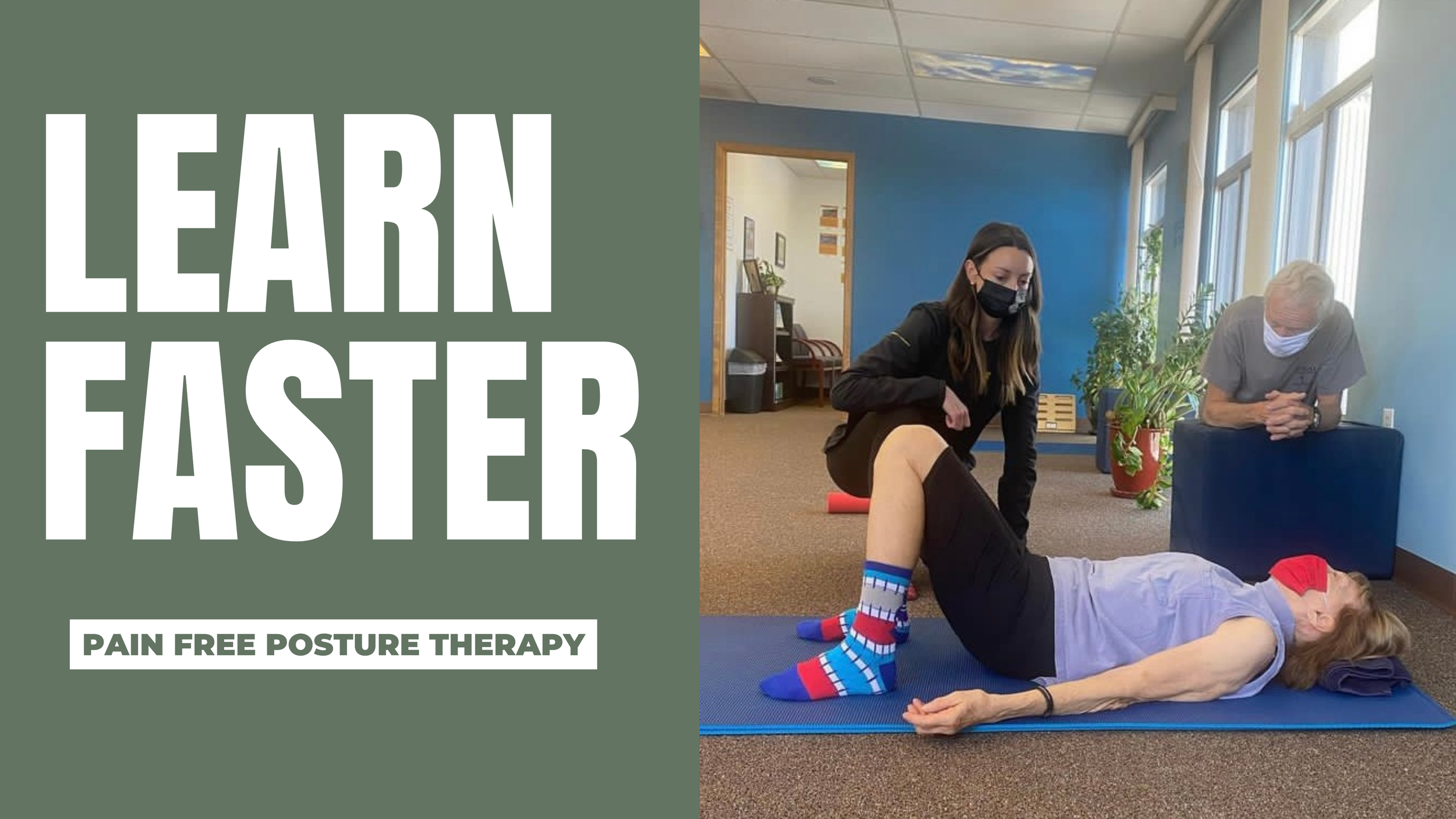10 Universal Principles of Learning
Whatever your goals may be, implement these 10 principles will help you to establish a sustainable and effective learning plan:
1. Intensive Immersion Shortens the Learning Curve
Daily learning builds the habit and deepens the imprint on our brains. This is true in language learners, musicians, athletes and it’s true for postural therapy also.
2. Get Good Teacher and Consistent Feedback
With a trusted guide we can save ourselves significant time, effort and frustrations in the learning process. Your therapist has walked this path many times- use us a guide. No question is too small or silly. The better we communicate at the beginning the faster we reach your goals.
3. Practice 7X More Than You Passively Learn
For every hour of studying a topic you should practice it for 7 hours. This math roughly works out to DO YOUR ROUTINE DAILY. The only exception to this equation is at the outset when we will have daily contact to ensure the best result for you.
4. Be Willing to Make Mistakes
Mistakes are a highly effective learning tool when we embrace them instead of avoiding them at all costs. Einstein failed math and Michael Jordan was cut from his high school basketball team.
5. Move Forward Before You Feel 100% Ready
Many folks get stuck in ‘paralysis by analysis’ and question their capabilities to their detriment, when they are actually able to do more than they realize. Don’t stay in your comfort zone too long.
6. Practice Moderation
Easy does it. Don’t become obsessive in your quest to accomplish your goal and lose sight of important subtle information. In this context: listen to your body. Don't do 5 sets of 1000 in an effort to heal overnight! Take breaks and don't be married to the protocol.
7. Review the Fundamentals Regardless of Your Level
When teams fail the coach always takes them back to the fundamentals of footwork, passing, teamwork, etc. Just because you’ve done an exercise for a while doesn’t mean you still don’t need smaller amounts of it as you progress to new ones.
8. Improve and Innovate Your Knowledge
As you explore your new skills it helps to begin applying some of your own thoughts and theories. Even if you make some mistakes, that’s where the learning happens.
9. Teach What You Know to Others
Sharing your knowledge with others helps you to better conceptualize, develop and apply your own understanding of the topic. Get your friends and family to do your menu with you.
10. Learn Complimentary Skills
Take an interest in your body and health in other ways such as nutrition, new sports or outdoor activities, ask anatomy questions of your therapist; we are posture nerds and LOVE those discussions! Greater knowledge leads to greater empowerment and self-sufficiency.
